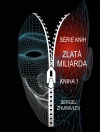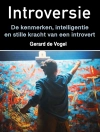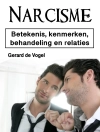In the Jewish tradition, it is incumbent upon every generation to attempt to find meaning in its history. Meaning is co-created within the context of the inter-subjective field of a meeting of minds. Psychoanalysis, in some respects like the Jewish tradition from which it emerged, represents a body of thought about man’s relation to himself and to others, and places great value on the influence of memory, narrative, and history in creating meaning within the dyadic relationship of analyst and patient. In Answering a Question with a Question: Contemporary Psychoanalysis and Jewish Thought, editors Aron and Henik have brought together an international collection of contemporary scholars and clinicians to address the interface and the mutual influence of Jewish thought and modern psychoanalysis.
İçerik tablosu
Acknowledgement. Preface. Introduction. 1. HISTORICAL CONTEXT. Psychoanalysis and Judaism in Context. 2. CLINICAL PRESENTATION. The Jew for Jesus and Other Analytic Explorations of God. Dreams and Authoritative Knowledge: Bridging Judaism and Psychoanalysis. Holding the Mourner: Jewish Ritual through a Psychoanalytic Lens. Hearing “Thou Shall Not Kill” When All the Evidence is to the Contrary: Psychoanalysis, Enactment, and Jewish Ethics. 3. BIBLICAL COMMENTARY. A Freudian and a Kleinian Reading of the Midrash on the Garden of Eden Narrative. Transformations in the ‘Mental Apparatus of Dreaming’ as Depicted in the Biblical Story of Joseph. ‘Let Me see That Good Land:’ the Story of a Human Life. Rebecca’s Veil: A Weave of Conflict and Agency. 4. THEORETICAL PAPERS. “Demand a Speaking Part!”: The Character of the Jewish Father. The Problem of Desire: Psychoanalysis as a Jewish Wisdom Tradition. “Going Out to Meet You, I Found You Coming Toward me”:Transformation in Jewish Mysticism and Contemporary Psychoanalysis. ‘Foreignness is the Quality Which the Jews and One’s Own Instincts Have in Common’: Anti-Semitism, Identity and the Other. A Burning World, An Absent God:Midrash, Hermeneutics, and Relational Psychoanalysis. Contributors. Index.
Yazar hakkında
Lewis Aron, Ph.D. is director of the New York University Postdoctoral Program in Psychotherapy and Psychoanalysis. He has served as President of the Division of Psychoanalysis of the American Psychological Association; founding President of the International Association for Relational Psychoanalysis and Psychotherapy (IARPP); founding President of the Division of Psychologist-Psychoanalysts of the New York State Psychological Association (NYSPA). He holds a Diplomate in Psychoanalysis from the American Board of Professional Psychology and is a Fellow of both the American Psychological Association and of the Academy of Psychoanalysis. Dr. Aron is the author and editor of numerous scholarly articles and books including A Meeting of Minds. He was one of the founders, and is an Associate Editor of the journal, Psychoanalytic Dialogues and is the co-editor of the Relational Perspectives Book Series, Routledge. He is the author of the forthcoming book, co-authored with Karen Starr, Defining Psychoanalysis: The Ego and the Yid. Libby Henik, LCSW is in private practice in New York and New Jersey. She is a graduate of the Wurzweiler School of Social Work of the Yeshiva University and a graduate in Psychodynamic Psychotherapy of the American Institute for Psychoanalysis of the Karen Horney Psychoanalytic Center. She also holds a Master of Arts in Hebrew Literature from Hunter College. Ms. Henik studied biblical exegesis and Hebrew literature with Nechama Leibowitz at Bar-Ilan University and with Professor Milton Arfa at Hunter College. She has taught in Israel, the United States and the former Soviet Union.












